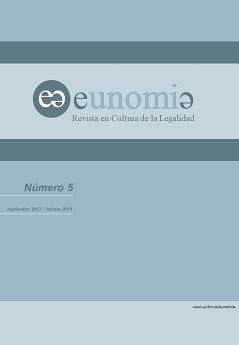Genocidio
Resumen
El vocablo "genocidio" fue creado ex novo por el jurista polaco de origen judío Rafael Lemkin, entendiendo por tal la destrucción de una nación o de un grupo étnico. Este neologismo surge de la palabra griega "genos", que significa raza, tribu, y el vocablo latino "cide", matar. Sin embargo, la palabra genocidio está cargada de valor, y a menudo es usada incorrectamente cuando se aplica a ciertos hechos trágicos de la historia. No es extraño confundir genocidio con calamidades, crímenes de guerra o asesinatos en gran escala. Por otro lado, es un término cuyos elementos definitorios son difíciles de precisar, lo cual ha provocado intensas polémicas. El propósito de este trabajo ha sido exponer el proceso de definición que se llevó a cabo en la Convención para la Sanción y Prevención del Genocidio de 1948, así como los rasgos que más discusión y debate han provocado: los grupos víctimas y la caracterización de la intención. El autor analiza en especial la caracterización de los grupos de víctimas de genocidio, la exclusión de los grupos políticos y las dos concepciones que estas últimas décadas se han enfrentado en la caracterización de la intención en el genocidio, la basada en la intención especial y la basada en el conocimiento, decantándose por la primera.
Descargas
Eunomía. Revista en Cultura de la Legalidad es una revista debidamente registrada, con EISSN 2253-6655.
Los textos publicados en esta revista están –si no se indica lo contrario– bajo una licencia Reconocimiento-Sin obras derivadas 3.0 España de Creative Commons. Puede copiarlos, distribuirlos y comunicarlos públicamente siempre que cite su autor y la revista y la institución que los publica y no haga con ellos obras derivadas. La licencia completa se puede consultar en: http://creativecommons.org/licenses/by-nd/3.0/es/deed.es




